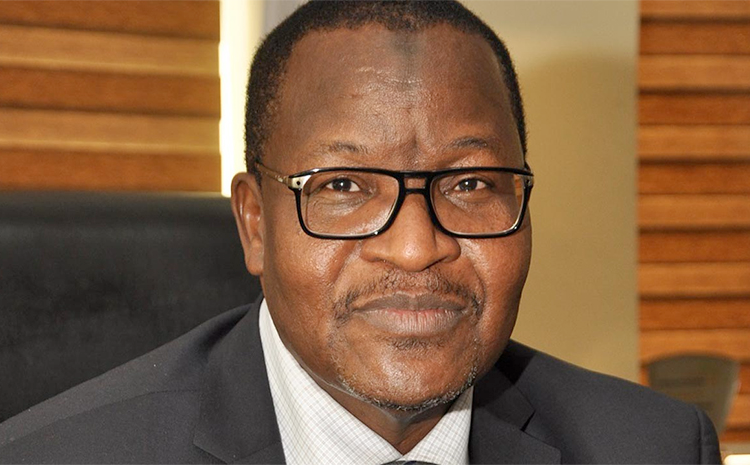The Nigerian Communications Commission (NCC) ably led by the Executive Vice Chairman and Chief Executive Officer of the Commission, Professor Umar Garba Dangote on assumption of office in 2015, introduced various reforms and initiatives to drive his seven-point agenda for the Nigerian telecommunications industry.
Among these was the launch of the Commission’s Strategic Vision Plan (SVP) 2021-2025 to drive the attainment of its mandate and develop the communications sector in line with the expectations of the Nigerian Communications Act (NCA) 2003.
The Strategic Vision Plan 2015-2020 expired in December 2020 and was replaced by the Strategic Vision Plan 2021-2025. The new SVP 2021-2025 has Five Visions and has three key supporting documents namely: Implementation Strategies and Timelines (IST); Implementation Responsibility Matrix (IRM); and Monitoring and Evaluation Framework (M&E).
Among the Five Visions are: Organisation renewal for operations efficiency and regulatory excellence; Facilitate the provision of infrastructure for a digital economy which fosters national development; Improve Quality of Service (QoS) for enhanced Consumer Quality of Experience (QoE); Promote fair competition, inclusive growth, increased investment and innovative services; and Facilitate Strategic Collaboration and Partnership.
Under the guidance of Prof Danbatta, the Commission also introduced the Strategic Management Plan (SMP) for fiscal years 2020-2024, the third of such since the deregulation of the Nigerian telecom industry in 2001. The SMP 2020-2024 is designed to bring the benefits of the digitized economy to the citizens of Nigeria.
Christened ASPIRE 2024, Prof Danbatta while unveiling the Commission’s SMP 2020 – 2024 said it comprises five pillars, viz: Regulatory Excellence- to develop adaptive and sustainable regulation to ensure efficient regulatory service to all stakeholders; Universal Broadband Access- to achieving pervasive and inclusive broadband access by providing incentives for broadband deployment in Nigeria.
The rest are of the pillars are; Promote Development of Digital Economy- provide the necessary regulations and initiatives for the achievement of the Digital Economy policy thrust of the Government; Market Development- ensure a dynamic market that drives innovation necessary for economic growth; and Strategic Partnering: aims at mutually sustainable collaboration with relevant stakeholders.
According to the EVC/CEO of the NCC, the SVP 2021-2025 and SMP 2020-2025 took into consideration, the provisions of the National Digital Economy Policy and Strategy 2020-2030, and National Broadband Plan 2020-2025.A look at the Five Visions and Five Pillars show that much progress has been made in meeting the milestones.
In its commitment to enhancing operational efficiency and regulatory excellence, the Commission continues to develop adaptive and sustainable regulation to ensure efficient regulatory service to all stakeholders.
The Commission’s regulatory priority areas for the next three years will include facilitating the attainment of 70 per cent broadband penetration by 2025 and building very reliable and sustainable broadband infrastructure in Nigeria; consumer protection and empowerment; and consolidation of spectrum trading to ensure maximum and efficient usage of available frequencies.
Under the guidance of Prof. Danbatta, the Commission is committed to delivering on its mandate of ensuring the quality of service to the consumers, driving investment and boosting healthy competition in the industry as enshrined in the Nigerian Communications Act (NCA), 2003.
To this end, the Commission last week carried out a repositioning exercise by redeploying some of its directors to head critical departments in a move to further enhance operational efficiency and sustain regulatory excellence.
Two directors of the Commission, Dr. Alhassan Haru and Mr. Efosa Idehen were redeployed to man the Technical Standards and Network Integrity (TSNI), and the Compliance Monitoring and Enforcement (CME). Other senior staff of NCC were also redeployed following the recent retirement of some directors, who reached the 60 years of age.
NCC Dedicates Toll-free Number 622 As Presidential Election Incident Hotline
Dr. Haru, hitherto Director, New Media and Information Security (NMIS), takes over from retiring director Engr Bako Wakil at the TSNI department, which oversees the maintenance of international standards and integrity of the national network, including quality of service (QoS) and equipment type approval.
Idehen, who was once the director at CME, returns to a familiar turf where he was nicknamed ‘Efosa, the Enforcer’ after a stint at the Consumer Affairs Bureau (CAB). He takes over from Mr. Ephraim Nwokonneya, who has also commenced his retirement leave. The CME department monitors the industry and enforces compliance with industry rules of engagement.
At the Projects Department of the Commission, from where Mrs. Iyabo Sholanke retired, Mr. Philip Eretan, Deputy Director, was appointed Head, while Mr. Kelechi Nwankwo, another deputy director, took over as head, Corporate Planning Strategy and Risk Management, (CPSRM), a position left by erstwhile director, Mr. Felix Adeoye.
Dr. Chidi Diugwu, deputy director at NMIS, took over from Haru as head of the department. Mrs. Safiya Jijji has assumed duty as Ag. Head, Zonal Operations, following the retirement of the erstwhile director, Mrs. Amina Shehu.
Another deputy director, Banji Ojo, takes over from Idehen as Head, CAB. NCC boss, in the redeployment, charged the new appointees to work in tandem with the Commission’s Strategic Management Plan (SMP) 2020-2024 and NCC’s Strategic Vision Implementation Plan (SVP) 2020-2025.
The EVC further assured industry stakeholders of the Commission’s determination to provide essential regulatory supports to consolidate on the growth already recorded in the industry. According to him, the NCC will continue to put round pegs in round holes to sustain its operational efficiency and regulatory excellence.
In line with the Commission’s vision to improve the Quality of Service (QoS) in Nigeria, we carried out a painstaking review of measured and monitored Key Performance Indications (KPIs) to identify challenges that are adversely impacting the Quality of Service (QoS). We established a task force on QoS and set up a QoS fixing project; re-energized the industry Working Groups on QoS, Short Codes on Multiple Taxation; and carried out the deployment of QoS and spectrum tools. All these measures were painstakingly implemented and have enhanced QoS delivery across networks.
Through these initiatives and periodic monitoring of operators‘ performance as measured against the thresholds set in the KPIs on QoS delivery, we have been able to hold operators accountable. While the technical QoS issues have been tackled through aggressive monitoring and enforcing adherence to relevant KPIs, the non-technical issues on QoS are also handled through enhanced collaborations with necessary stakeholders such as the Nigerian Governor’s Forum (NGF) and other relevant government agencies to assist in ensuring effective protection of Telecoms infrastructure from theft and vandalism, multiple taxations and indiscriminate shutting down.
In addition, the Commission regularly publishes details of the QoS performance of operators on its website, thus making the operators accountable to their customers. Through these publications, customers have sufficient information to choose their preferred networks.
Furthermore, we have provided efficient spectrum management by introducing innovative initiatives such as Spectrum Trading Guidelines, National Roaming Guidelines, and Co-location & Infrastructure Sharing Guidelines which now provide for active infrastructure sharing. These initiatives were developed after robust industry consultation in the spirit of the Commission’s participative approach to rule-making. The Commission is also forging ahead with the potential introduction of new options such as the use of TV White Space to solve network coverage issues.
In 2015, 217 access gap clusters were identified in the country affecting 40 million Nigerians without access to telecom services. Today, NCC has reduced the access gap clusters to 114 with 15 million of the 40 million digitally excluded Nigerians now having access to telecoms services. In line with the Commission’s Strategic Vision Plan (2021-2025), the NCC is committed to addressing the remaining access gap clusters, which are areas outside the frontier of economic viability to ensure the remaining 25 million Nigerians have access.
Similarly, there were 47,000 kilometres of fibre optic cables laid across the country as of 2015. However, as a result of regulatory focus, there are now approximately 54,725 kilometres of fibre cables laid across the country through the efforts of some private companies in the sector.
In line with the Federal Government’s target, additional 120,000 kilometres of fibre are being planned. In this regard, the Commission is working on last-mile connectivity to different parts of the country through leveraging the 40 terabyte capacity of six submarine cables on the coastal shores of Nigeria as of April 2022.
The licensing of seven Infrastructure Companies (InfraCos) to deploy fibre infrastructure across the six geo-political zones has also helped to galvanize increased connectivity. This will also bring about a reduction in the cost of data with a broadband penetration target of 70 per cent to cover 90 per cent of the population by 2025 as contained in the new Nigerian National Broadband Plan (2020-2025).
During the period under review, the Commission has put in place various consumer-centric initiatives to strengthen consumer protection and empowerment in the last seven years. These include the declaration of 2017 as the Year of the Consumer, the introduction of the Do-Not-Disturb (DND) 2442 Short Code, the introduction of the NCC toll-free Number 622; stringent provisions of Subscriber Identification Module (SIM) Registration, issuance of direction on forceful subscription and data roll-over, among others.





